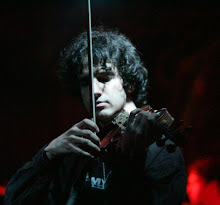It was an ending happier than any Hollywood director would dare to dream up. After years of captivity at the hands of left-wing FARC guerrillas, Ingrid Betancourt, three American defence contractors and 11 Colombian soldiers were rescued on Wednesday July 2nd by the army, without a shot being fired. It was a “miracle”, said Ms Betancourt, a former presidential candidate who holds French and Colombian nationality and who had been detained for more than six years, for much of that time in chains and in poor health. It was a triumph for Colombia’s president, Álvaro Uribe, who at some political cost had resisted pressure to negotiate for the release of Ms Betancourt. And it was a disaster for the FARC and its sympathisers in Latin America who hoped to use the hostage issue to weaken Mr Uribe.
The rescue operation involved years of planning. But it was also testament to the army’s new sophistication in intelligence and infiltration. The army built on its recent successes in disrupting the FARC’s communications and isolating its leaders. An attempt to rescue other guerrilla hostages in 2003 had ended in disaster, when a dozen were killed by their captors.
This time the army relied on trickery. A former hostage who escaped last year supplied details of the jungle camps in the remote south-eastern departments of Guaviare and Vaupés. Army intelligence agents, posing as senior FARC members, made contact with the guerrilla commander guarding the hostages. They gave him a false order purporting to be from the FARC’s new leader, Alfonso Cano, that the hostages were to be taken to two helicopters sent by a humanitarian organisation—mimicking the arrangements when five other captives were released earlier this year after mediation by Venezuela’s president, Hugo Chávez.
Once on board the helicopters, the two guerrilla escorts were overpowered and the army agents, dressed in Che Guevara T-shirts, broke the news to the hostages that they were flying to an army base and freedom. “We couldn’t believe it. The helicopter nearly fell because we jumped for joy,” said Ms Betancourt.
The operation is the latest of several devastating blows suffered this year by the FARC, which mixes an antiquated Marxism-Leninism with drug-trafficking and racketeering. In March, the army bombed a guerrilla camp just over the border in Ecuador, killing Raúl Reyes, a member of the group’s seven-man secretariat. The incident yielded a huge haul of documents from Mr Reyes’s computers. Days later another member of the secretariat was killed by his own bodyguard. Then Manuel Marulanda, the FARC’s founder and undisputed leader, died, supposedly of a heart attack.
The FARC still hold several hundred hostages, but they have lost their chief prizes. Ms Betancourt was a minor politician in Colombia when she was seized while campaigning for the presidency in 2002. But she has become a national cause célèbre in France, where she studied; she married a Frenchman and her two children live there. The three Americans, who were working on contract to the United States government, were captured when their anti-drug surveillance plane crashed in guerrilla territory in 2003.
The FARC claimed to want to swap their trophy hostages for jailed guerrillas. But e-mails from Mr Reyes’s computer, seen by The Economist, show that their real aim was to use them to embarrass Mr Uribe and to gain international recognition. They wanted the president to “demilitarise” a swathe of territory to allow talks. Mr Uribe was resolutely against that: during past peace talks the FARC used a similar enclave for recruiting and training while continuing to kill and kidnap.
The hostage release came in a week in which Mr Uribe was widely criticised at home for appearing to blow up a conflict with Colombia’s judiciary in order to engineer the possibility of a third term. For months he has refused to rule out seeking another constitutional change that would allow him to stand again. His supporters have collected enough signatures for a referendum on this issue. The triumphant release of the hostages, coming on top of his other successes, means that if he indeed wants a third term, Mr Uribe may well be able to get it. But others have political ambitions too. One is Juan Manuel Santos, who as defence minister oversaw those successes. Another is Ms Betancourt, who in freedom was quick to say she still aspires to the presidency. It would be even stranger than the movies if the three protagonists in this week’s happy ending were to meet again in a sequel at the ballot box in two years’ time.
Jul 3rd 2008 BOGOTÁ
From www.economist.com

Nenhum comentário:
Postar um comentário